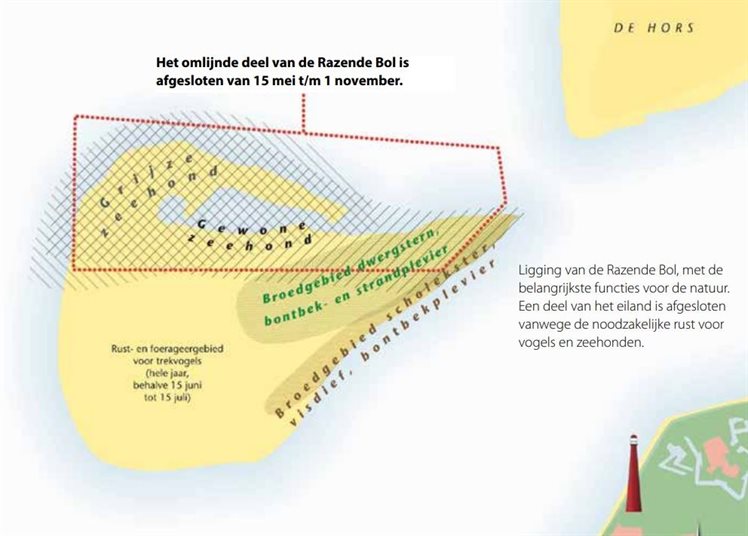Recreation and Natura 2000
Unlike the Wadden Sea and the waters of the Delta, in the designated Natura 2000 areas there is next to no part of the North Sea that is closed to recreational users. That is not to say that this sector is not responsible for any disruption. Every year, millions of recreational users spend time on the beaches and a large proportion of these are walkers, horse riders, anglers, surfers, kite surfers (with or without a power kite), wind surfers, jet skiers, catamaran sailors or canoeists in the breakers.
In terms of recreational use of the North Sea, the Natura 2000 management plans are based on the importance of conscious and responsible behaviour. So measures to prevent or limit disruption focus on information and on agreements with recreational organisations in respect of codes of behaviour. Only when and where it can be predicted that this will deliver insufficient protection, for instance in the breeding season, will areas be closed (entirely or partially).
Example: Razende Bol
A good example is the Razende Bol, at the mouth of the Marsdiep (between Den Helder and the island of Texel). This large, slowly shifting sand bar, permanently above the waterline, is not only popular with recreational water users that moor there but also with waders and waterfowl. The manager of the protected area, Noord-Hollands Landschap, devotes a lot of energy to a permanent information programme together with other nature conservation organisations. In the summer months, a warden on the sand bar is available to talk to recreational users. In the wider environment, from which recreational users depart to visit the Razende Bol, schools also form part of the target groups of the information programme. With the support of the Waddenfonds it has been possible to make an excellent brochure for this target group.
But these measures are not enough to guarantee sufficient rest for birds and seals on the northern part of the sand bar. So that part is closed from spring until the autumn.